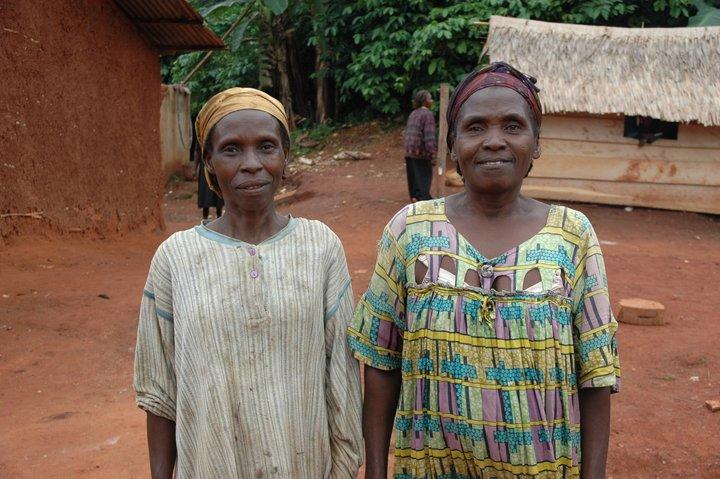Blog Non-timber forest products: the way forward for rural women?

This year for International Women's Day, Bioversity has collected stories that inspire progress. In this blog post, Bioversity gender fellow Yvonne describes the changing roles of Cameroonian women.
This year for International Women's Day, Bioversity International has collected stories that inspire progress. In this blog post, Bioversity International gender fellow Yvonne Kiki Nchanji describes the changing roles of Cameroonian women.
In the forest communities of Africa, a division of labour has long been clear among men and women. Women in Cameroon’s forest-dwelling communities have typically been in charge of feeding the family through the cultivation of food crops and the collection of non-timber forest products, which they processed into culturally valued dishes. Non-timber forest products are fruits, nuts and other food products and that are important for the livelihoods of rural men and women. Men, in turn, helped to clear the food crop plots and concentrated on hunting and on the cultivation of cash crops, such as cocoa. Agricultural crops and non-timber forest products were mainly reserved for household consumption.
But those days have gone! The improvement in transportation to remote areas, better access to urban markets and new income-generating opportunities have motivated women as well as men to be actively involved in the sale of non-timber forest products and agricultural products to earn more money.
Gendered Access to and Use of Forest Resources
Research on gendered knowledge, skills, interests, access and control of forest resources conducted in the East and South regions of Cameroon shows that men and women have similar access to non-timber forest products. Bush mango,moabiand njangsangcan be foundin the wild with restrictions occurring only on plots of land which are under cultivation or in fallows, where in general the land owner and close relatives have exclusive access to these products.
Gendered Preferences and Priorities
The men and women who took part in the participatory research organized by Bioversity International expressed different preferences for forest products. Women were more interested in non-timber forest products such as bush mango, which is used for food or medicinal purposes, and which they themselves gather, process and sell. Fewer men are involved in this activity as they prefer bush meat hunting and small-scale logging.
Gendered Livelihoods
Although revenue earned from the sale of non-timber forest product is increasingly important to rural communities, Ms Ndimba, a Bulu native from a village in the South Region of Cameroon said, “We cannot rely solely on non-timber forest products for our survival. We can’t eat only non-timber forest products every day, we need to add variety to our diet and moreover, money from non-timber forest product sales is not enough to provide income for the family throughout the year. As a result, we have expanded our agricultural activities, primarily for subsistence and secondly as a means of raising income for the household.”
Due to the increasing cash flow from non-timber forest product gathering and food crop cultivation and sales, men are becoming interested in something that was traditionally seen as a ‘woman’s business’.
When asked why, Mr Menguele Jean, replied: “You can harvest cocoa just once a year and before production we need money for farm maintenance and my family’s sustenance. We therefore decided to open larger plots to produce more food crops—mostly plantain and cocoyam—for sale.”
This new drive for income over time has led to increased labour for the women who are expected to cultivate larger plots while maintaining their demanding daily agricultural, gathering and household chores.
Ms Adrienne: ‘What Women Need’
Ms Adrienne recently married into the Melambo village, located in Cameroon’s East Region. She laments that although she works more, she earns less than she thought she would.
She explains that, “We the women, who do most of the labour, remain small-scale retailers of non-timber forest products and food crops with very little profit, but the men—natives and non-natives alike—have become involved in wholesale and are enjoying most of the profit without labouring as much as we do.”
As a result, she concludes, the respective share from the sale of non-timber forest products and agricultural products that goes to men and women needs to be renegotiated.
Blog post by Yvonne Kiki Nchanji, Gender Research Fellow, Bioversity International; CIFOR, Cameroon.
Bioversity International’s Gender Research Fellowship Programme is funded by the CGIAR Research Program on Forests, Trees and Agroforestry.
Photo: Gender-responsive research participants from Cameroon. Credit: J.Gerbig
This story is part of the 2014 Annual Report
